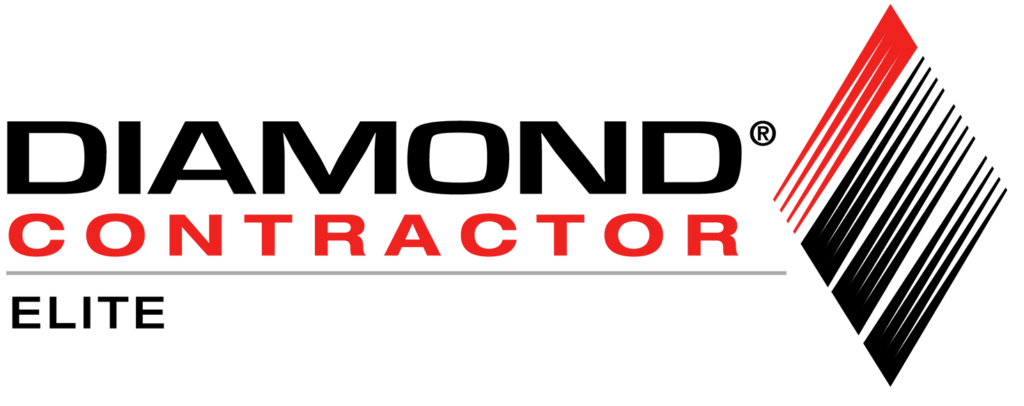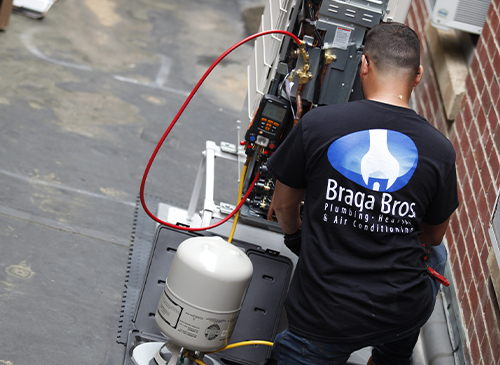Heat Pump Installation Near Me, Heat Pump Repair, Heat Pump Replacement & Heat Pump Installation in Chatham, MA
Heat Pump Solutions for Chatham’s Unique Coastal Climate
When considering heating and cooling options for your Chatham home, heat pumps represent one of the most efficient and versatile solutions available today. At Braga Bros Plumbing, Heating, Air Conditioning & Electrical, we specialize in installing, maintaining, and repairing heat pump systems specifically designed to handle the maritime climate conditions that define Cape Cod’s outer reaches. Our comprehensive approach to heat pump technology ensures that homeowners throughout Chatham receive systems perfectly matched to their specific needs, whether dealing with summer humidity, winter nor’easters, or the constant salt air that characterizes coastal living.
The technology behind modern heat pumps has evolved dramatically over the past decade, making them increasingly suitable for New England’s variable weather patterns. These systems work by transferring heat rather than generating it through combustion, which means they can provide both heating and cooling from a single unit. During winter months, heat pumps extract warmth from outdoor air—even when temperatures drop below freezing—and transfer it inside your home. In summer, the process reverses, removing heat from indoor spaces and releasing it outdoors, functioning essentially as an air conditioning system. This dual functionality makes heat pumps particularly valuable for Chatham residents who need reliable climate control throughout the year.
Energy Efficiency and Cost Savings in Coastal Massachusetts
The efficiency ratings of modern heat pump systems often exceed 300 percent, meaning they produce three units of heating or cooling energy for every unit of electricity consumed. This remarkable efficiency translates directly into lower utility bills for Chatham homeowners, particularly when replacing older electric resistance heating or aging oil furnaces. According to recent industry data, homeowners switching from oil heat to heat pumps can reduce their annual heating costs by 50 to 70 percent, depending on system specifications and home insulation levels. These savings become even more pronounced when considering the volatile nature of oil prices and the increasing stability of electricity rates in Massachusetts.
We understand that investing in a new heating and cooling system requires careful consideration of both immediate costs and long-term benefits. Massachusetts offers various incentive programs specifically designed to encourage heat pump adoption, including rebates through Mass Save that can cover significant portions of installation costs. Our team stays current with all available programs and assists customers in navigating the application process to maximize their savings. Additionally, federal tax credits for energy-efficient home improvements can further reduce the effective cost of heat pump installation, making this technology more accessible than ever before.
Technical Specifications and System Design
Properly sizing and configuring a heat pump system requires detailed analysis of multiple factors specific to each Chatham property. We evaluate square footage, ceiling heights, insulation quality, window efficiency, and existing ductwork conditions to determine the optimal system capacity. Modern heat pumps come in various configurations, including ducted systems that utilize existing ductwork, ductless mini-splits that provide zone-specific control, and hybrid systems that combine heat pump technology with backup heating sources for extreme weather conditions.
The salt air environment in Chatham presents unique challenges that we address through specialized equipment selection and installation techniques. Coastal-rated heat pumps feature enhanced corrosion resistance through specialized coatings and materials designed to withstand salt exposure. These units typically incorporate aluminum or specially treated copper coils, stainless steel hardware, and protective cabinet coatings that significantly extend equipment lifespan in maritime environments. Regular maintenance becomes particularly important in coastal settings, where salt accumulation can affect system performance if not properly managed through scheduled cleaning and inspection protocols.
Installation Process and Professional Standards
Our installation process begins with comprehensive load calculations using industry-standard Manual J methodology, ensuring accurate system sizing that optimizes both comfort and efficiency. We believe the values that support a family should also be respected in business relationships, which means we approach every installation with meticulous attention to detail and clear communication throughout the project. The installation typically involves several phases, starting with electrical service evaluation to ensure adequate capacity for the new system, followed by refrigerant line installation, indoor and outdoor unit mounting, and final system commissioning.
During installation, we pay particular attention to refrigerant line routing, ensuring proper insulation and protection from environmental factors. Condensate drainage receives special consideration in Chatham homes, where proper pitch and freeze protection prevent water damage during temperature fluctuations. Our technicians complete thorough system testing, including pressure tests, vacuum procedures, and performance verification across all operating modes. We provide comprehensive training on system operation, including thermostat programming, filter maintenance schedules, and basic troubleshooting procedures that help homeowners maximize their investment.
Maintenance Requirements and Long-term Performance
Heat pump systems in Chatham require specific maintenance protocols to ensure optimal performance throughout their operational lifespan, typically ranging from fifteen to twenty years with proper care. Our maintenance programs include:
- Seasonal inspections: checking refrigerant levels, electrical connections, and control sequences
- Coil cleaning: removing salt deposits and debris that accumulate on outdoor units
- Filter replacement: maintaining proper airflow and indoor air quality
- Drainage system verification: ensuring condensate lines remain clear and properly pitched
- Performance testing: measuring heating and cooling output against manufacturer specifications
- Component lubrication: maintaining fan motors and other moving parts
Regular maintenance not only extends equipment life but also maintains manufacturer warranty coverage and ensures consistent energy efficiency. We recommend bi-annual service visits for Chatham properties, with particular attention to pre-winter preparation ensuring reliable operation during peak heating demands.
Future Developments and Industry Innovations
The heat pump industry continues advancing with developments in refrigerant technology, variable-speed compressors, and smart home integration capabilities. Next-generation refrigerants offer improved environmental profiles while maintaining excellent heat transfer characteristics. Variable-speed technology allows systems to modulate capacity based on real-time demands, improving comfort while reducing energy consumption during partial-load conditions. Smart thermostats and monitoring systems enable remote system management and predictive maintenance scheduling, identifying potential issues before they result in system failures.
As Chatham continues embracing sustainable energy solutions, heat pumps represent a cornerstone technology for reducing residential carbon footprints while maintaining comfortable indoor environments. The integration of heat pumps with solar photovoltaic systems creates opportunities for near-zero energy homes, where renewable electricity powers highly efficient heating and cooling equipment. We remain committed to bringing these advancing technologies to Chatham residents, ensuring our community benefits from the latest innovations in comfort and efficiency while respecting the journey we share with each customer in achieving their home comfort goals.



